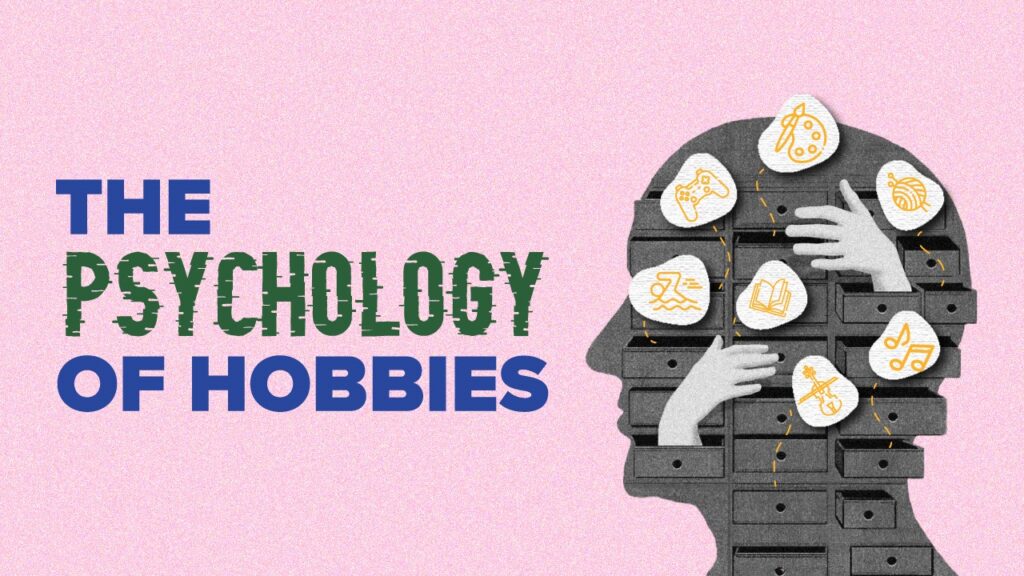How we spend our downtime has a major impact on how we’re able to recuperate, rejuvenate, and get back to the other parts of our life.
A hobby could be anything that you wish to pursue, at whatever level that may be. After all, amateur derives from the Latin root word for “love” not “perfection”. Hobbies fulfill essential psychological needs for self-discovery, mastery, and connection, ultimately contributing to our well-being.
So how important are hobbies? Are they even good for us? Which hobbies are beneficial? Let’s find out!
In the Indian context, anything that doesn’t produce a material benefit is usually looked down on. It may be perceived as “not worth” the time (and sometimes the money) that we spend on them. This illuminates a popular perception of hobbies in our society. This view is in direct contradiction with current research.
Researchers have identified the impact of leisure on personal development. Leisure helps build an integral sense of personal agency, and self-directed learning skills that are crucial for all professions and careers. Hobbies help build a strong sense of individuality and provide respite from the intense involvement in serious pursuits (as may often be the case in life).
Not only that, research shows a link between psychological and physical well-being, and one’s leisure activities. Hobbies are uniquely important for kids, and teenagers because it helps them discover who they are, and who they want to be.
Hobbies help promote identity, autonomy, competence, initiative, civic duty, and social connection and fosters empathy, loyalty, and FUN!
Frankly, that sounds amazing at any stage in life! Hobbies help us achieve a sense of deep focus and flow that is pleasant and helpful. And who knows, maybe you end up devoting your life to your hobby in a professional way!
Let’s take an example. A new hobby presents itself in the form of learning how to cook. It’s an exciting opportunity. We can learn how to manage the ingredients we have to adjust the dish, understand the different kinds of ingredients and how to use them effectively, boosts confidence, enhances autonomy by showing us we can create our own food whenever, increases focus, reinforces the structure of learning from scratch, maybe sharing the meals with loved ones, and not to forget the pleasure and joy we would derive from it!
Not all leisure activities however produce these marvelous effects. The hobby must be one of choice that a person finds fulfilling. Any loss of free will may induce us to perceive what we would otherwise find pleasant as an unwanted burden.
We can’t force ourselves to like something but that certainly doesn’t rule out the option to explore and find out how we feel about a hobby. We may have multiple hobbies, or a few. We may engage in them regularly, or sometimes. At the end of the day, what matters is how meaningful and fulfilling we find them. And since everyone is uniquely different, the best mix of variety, duration, and devotion would differ for all of us. Something that we can reach through trial, error, adjustment, fine-tuning until we reach there.
Hobbies activate the brain’s reward systems and release neurotransmitters, like dopamine, that are pleasurable and keep us motivated. So even if you don’t feel motivated from the get-go, give the hobby a shot. You never know what may stick!
You can choose a hobby by following your natural interests. What did you enjoy as a child that you wish you could still do? Consider your needs. Do you want social interaction? Or a creative outlet? And finally, start out small! See if you find it worth continuing and take it from there.
Hobbies and leisure activities are therefore an important part of life. They shower us with multiple benefits and add brilliant colors to life. Like the perfect side dish to go along with the meal, it adds nourishment, flavor, and enhances the entire meal. So go out there and get leisuring! Try that whacky hobby you’ve been eyeing for a while. Call up your friends if it’s a group activity. Find the time to invest in enhancing your life!
References
- https://www.tandfonline.com/doi/full/10.1080/16078055.2016.1167770
- https://journal.espe.edu.ec/ojs/index.php/RECIHYS/article/view/3148
- https://link.springer.com/article/10.1023/A:1021624609006
- https://www.semanticscholar.org/paper/Personal-Development-Through-Leisure-Stebbins/09c06db1a8bc1ed67153954c18e3fe0adeaa6abc
- https://pubmed.ncbi.nlm.nih.gov/19592515/
- https://psycnet.apa.org/doiLanding?doi=10.1037%2Faca0000366
- https://sci-hub.se/https://doi.org/10.1080/0937445960070108
- https://www.cabidigitallibrary.org/doi/book/10.1079/9781789248203.0000
- https://sci-hub.se/10.1002/yd.394
- https://onlinelibrary.wiley.com/doi/10.1002/j.2161-0045.1997.tb01005.x
- https://online.ucpress.edu/collabra/article/7/1/23473/117253/Leisure-Activities-as-a-Driver-of-Personality
- https://www.tandfonline.com/doi/abs/10.1080/00222216.2014.11950320
- https://research.reading.ac.uk/research-blog/the-science-behind-why-hobbies-can-improve-our-mental-health/


